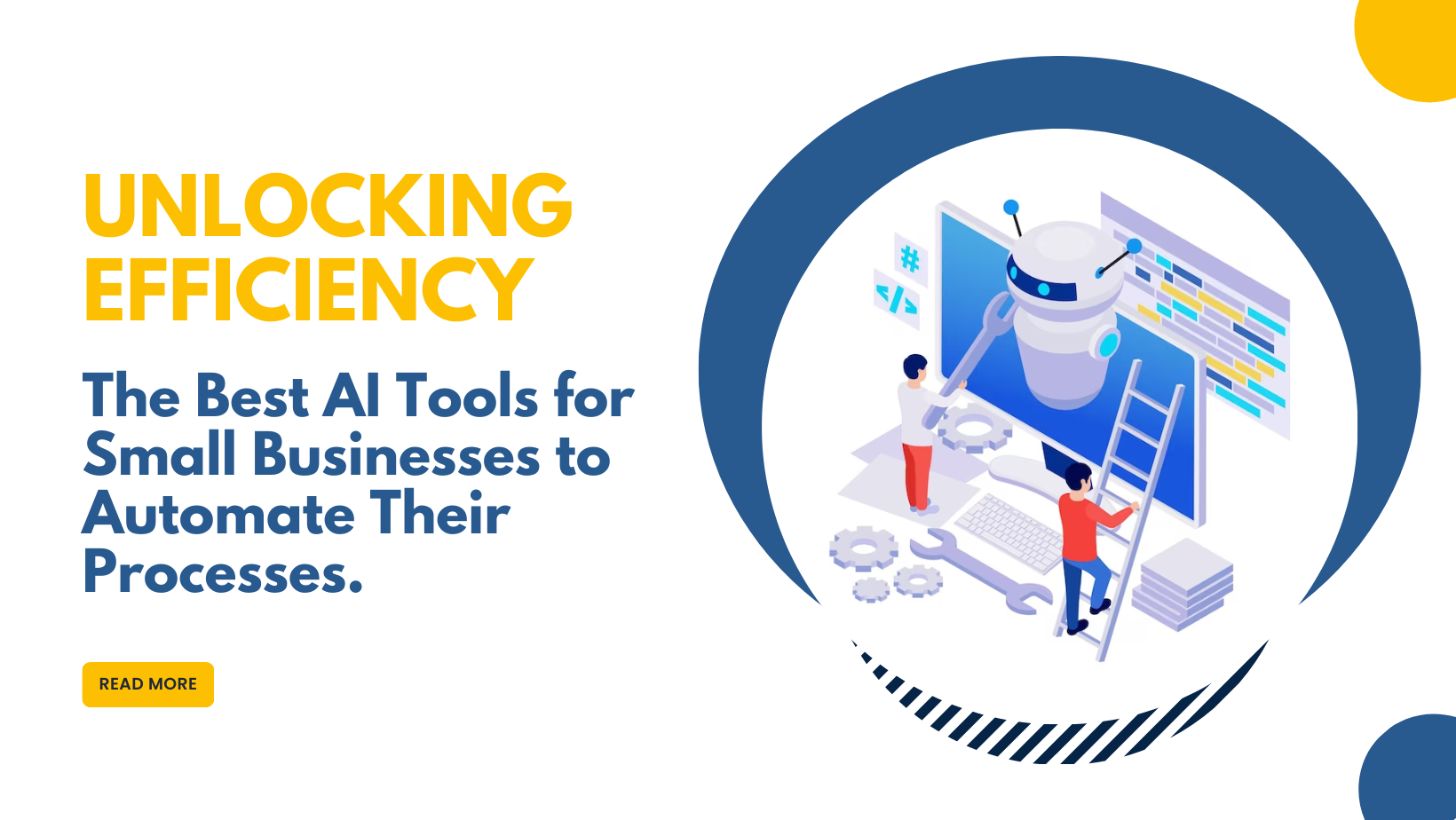Disclosure: Please note that this article may contain affiliate links. We may earn a commission if you make a purchase through these links.
In today's fast-paced business landscape, small businesses are constantly seeking ways to stay competitive and efficient. One powerful ally that has emerged to assist them in this endeavor is Artificial Intelligence (AI). AI tools offer small businesses the ability to automate various processes, streamline operations, and make data-driven decisions without the need for a large workforce or extensive technical expertise.
In this article, we'll explore the best AI tools that small businesses can leverage to automate their processes and stay ahead in their respective industries.
The Power of AI in Small Business
Artificial Intelligence encompasses a wide range of technologies, from machine learning and natural language processing to chatbots and data analytics. Small businesses can harness the power of AI to enhance their productivity, improve customer experiences, and reduce operational costs.
Let's dive into some of the best AI tools available for small business automation:
1. Chatbots and Virtual Assistants
Chatbots and virtual assistants have become indispensable for enhancing customer service and automating routine tasks. Tools like Chatfuel, Drift, Haly AI for Slack and Google Dialogflow enable small businesses to create AI-powered chatbots that can handle customer inquiries, schedule appointments, and provide personalized assistance round the clock.
2. Customer Relationship Management (CRM)
Effective customer relationship management is crucial for small businesses. AI-infused CRM solutions like Salesforce and HubSpot offer features like predictive analytics, lead scoring, and automated follow-ups, helping businesses nurture leads and enhance customer relationships.
3. Marketing Automation
Marketing can be resource-intensive, but AI can optimize campaigns and boost ROI. Constant Contact uses AI to analyze customer behavior and optimize email marketing, while SocialBee offers social media automation and scheduling, allowing businesses to stay active and engage with their audience consistently.
4. Email Marketing
For businesses looking to automate email marketing, GetResponse and MailerLite provide AI-driven tools for segmenting subscribers, personalizing content, and automating email campaigns. These tools can significantly improve email marketing effectiveness.
5. Data Analytics and Business Intelligence
Data is a goldmine of insights, and AI can help unlock its potential. Google Analytics and Tableau provide powerful analytics capabilities, helping small businesses track website performance, visualize data, and make data-driven decisions.
6. Inventory Management
Inventory management can be complex, but AI tools like QuickBooks Inventory and Zoho Inventory simplify the process. These solutions offer real-time insights, demand forecasting, and inventory optimization to prevent overstocking or understocking.
7. Finance and Accounting
Keeping track of finances is essential for small businesses. QuickBooks and Xero are AI-powered accounting solutions that automate tasks like expense tracking, invoicing, and financial reporting, reducing the administrative burden on small business owners.
8. HR and Recruitment
Recruitment can be time-consuming, but AI tools like Workable, and BambooHR simplify the hiring process. They offer AI-driven applicant tracking, candidate screening, and employee onboarding, making HR operations more efficient.
9. Customer Support
Efficient customer support is crucial for retaining customers. Freshdesk and Zendesk offer AI-powered helpdesk solutions that automate ticket management, categorize inquiries, and provide instant responses, ensuring excellent customer service.
10. E-commerce and Sales
For online businesses, e-commerce and sales automation tools like Shopify and BigCommerce are game-changers. They use AI to optimize store operations, personalize product recommendations, and analyze customer behavior.
11. Document Management
Managing documents can be time-consuming and error-prone. PandaDoc and BlueInk are AI-driven document management tools that simplify tasks like electronic signatures, document creation, and contract management.
12. Cybersecurity
Protecting sensitive data is paramount. Darktrace and Cylance offer AI-driven cybersecurity solutions that detect and mitigate threats in real time, safeguarding small businesses from cyberattacks.
13. Project Management
Managing projects and tasks can be streamlined with AI-powered tools like Trello, Wrike and Asana. These tools automate task assignments, project tracking, and collaboration, improving team productivity.
14. Voice Assistants
Voice assistants like Amazon Alexa for Business and Google Assistant are revolutionizing workplace automation. They integrate with various apps and devices, allowing users to perform tasks through voice commands, enhancing office efficiency.
15. AI-Powered Analytics
To gain a deeper understanding of customer behavior and preferences, tools like Kissmetrics and Klaviyo offer AI-powered analytics solutions. These tools provide valuable insights for marketing strategies and decision-making.
Conclusion:
In conclusion, small businesses can harness the power of AI to automate processes, improve efficiency, and make data-driven decisions. By carefully selecting the right AI tools based on their specific needs, small businesses can stay competitive, reduce operational costs, and focus on growth. Embracing AI technology is not just a trend; it's a strategic move that can pave the way for long-term success in today's dynamic business landscape.




0 Comments